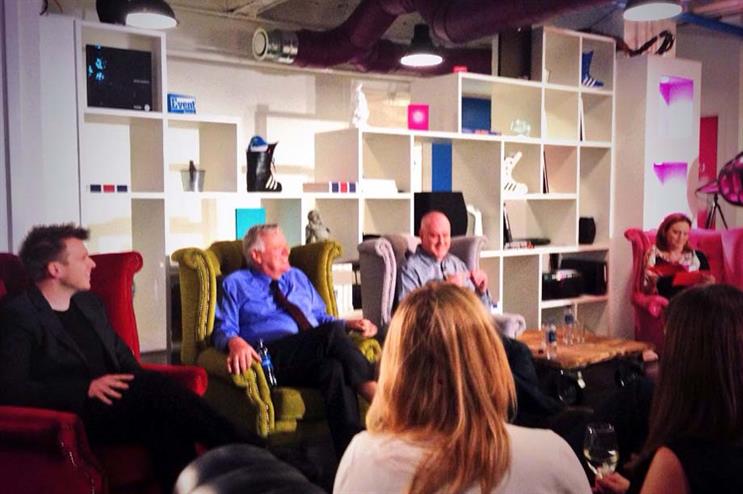
The event, which was attended by a number of the agency’s clients as well as staff members and media, centred around a Q&A session with an expert panel, chaired by Kath Goodson, head of WRG London. This included non-executive director Lord Michael Grade, who is also a non-executive director for Pinewood Studios, creative director Dan Shipton, who worked on Kate Bush’s Before the Dawn tour, and executive creative director Mark Gass.
The panel first discussed the experience economy, and referenced brand examples such as Starbucks as one of many companies going beyond providing goods and services to customers by creating a theatre-style experience in its stores.
Gass explained: "There is a huge premium on experiences, as well as a desire and demand from consumers for this type of economy." He cited WRG’s work with Hewlett-Packard on the ZED pop-up studio in London as an example of experience economy. The event, which is taking place from 29 September until 10 October at The Vinyl Factory, is offering a range of talks, tutorials and creativity sessions for consumers.
"They are looking through the eyes of the customer, looking at their world and not the brand’s world," he added.
Grade said rather than theatre influencing retail, that retail was theatre. "You go into a brand’s temple or theatre and there is a certain mood created. Good brands will use the environment to send messages about the kind of goods they sell. The public’s appetite for live experiences is important – visiting Selfridges for example is like going to a souk in Istanbul. It’s not intimidating and offers a variety of boutiques."
Speaking about the world of theatre and his work on Kate Bush’s tour, Shipton explained it was important to break the barriers separating the audience from a brand in order to achieve a successful experience. "The key is for the audience to have an emotional response to something. They might already have an invested emotion in a person like Kate, so on the tour it was always important to create memories for them at the show, and that can be applied by brands at their own events."
When discussing whether digital enhances or burdens an event, Grade said it doesn’t allow a brand to share a moment or an emotional charge with their audience. "Pointing a phone at something is pointless, the focus should always be about the real experience."
Gass said it was a big challenge for brands when it comes to incorporating theatre into their own businesses. "Brands need to be more comfortable, a logo can be a barrier to an experience. It’s not authentic and people can feel manipulated. They need to let go and think about how experiential can affect brand behaviour."
When looking at where experiential is going, Gass cited Joan Littlewood’s fun palaces concept – a series of pop-ups where the general public can experience anything. "We need to be breaking down more barriers of where or how something is experienced. There’s an opportunity for brands to explore unsual spaces to authentically connect with consumers."
Shipton agreed and said the space for performance will be crucial to the success of future experiences. "Consumers lead multisensory lifestyles and that’s why they expect more from experiences. We can help our audiences with that by transforming spaces and changing our own way of thinking."
Comment below to let us know what you think.For more in-depth and print-only features, showcases and interviews with world-leading brands, don't miss the next issue of Event magazine by subscribing here.

